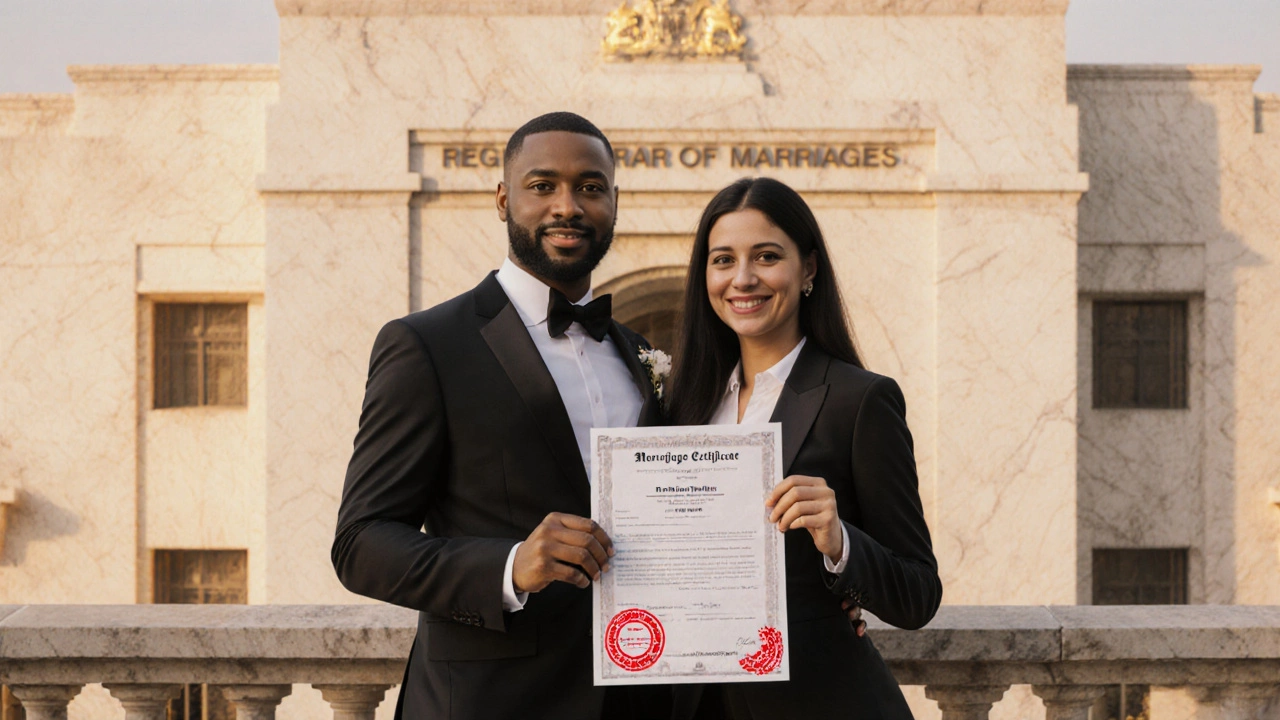Validate Foreign Marriage – Everything You Need to Know
When dealing with Validate foreign marriage, the process of confirming that a marriage performed abroad meets the legal requirements of another country. Also known as foreign marriage validation, it ensures the union is recognized for documentation, immigration, and tax purposes.
Foreign marriage registration, the filing of a marriage certificate with local authorities in the country where you reside is the first practical step after the ceremony. Most jurisdictions require you to submit a notarized copy of the overseas certificate, a translation, and proof of identity. This step creates a legal link between the foreign record and the local system, allowing courts to treat the marriage as if it happened at home. Without registration, you may face hurdles when applying for spousal visas or filing joint taxes.
Many people wonder whether a US marriage certificate, the official document issued by a U.S. consular office for ceremonies performed abroad is needed. The answer depends on the destination country’s rules. Some nations accept the consular certificate as proof, while others demand the original foreign certificate plus an apostille. Knowing this distinction saves time and prevents costly re‑applications.
Key Steps in Validate foreign marriage Process
The journey typically follows three linked phases: (1) Document acquisition – gather the original certificate, translation, and apostille; (2) Local registration – submit everything to the civil registrar or equivalent authority; (3) Legal confirmation – obtain a certified copy that can be used for immigration, tax, or inheritance matters. Each phase requires strict adherence to the prevailing immigration law, the set of rules governing entry, stay, and family reunification for foreign nationals of the host country.
Practical tips can make the process smoother. First, check whether the foreign country is a signatory to the Hague Apostille Convention – if yes, you only need an apostille, not full legalization. Second, keep digital scans of every document; many registrars accept electronic uploads now. Third, consider hiring a local attorney who specializes in family law; they can navigate nuances like compulsory blood tests or residency prerequisites that differ from state to state.
Finally, remember that validation isn’t a one‑time event. Changes in immigration policy, tax law, or even the status of the foreign jurisdiction can require a fresh validation years later. Staying informed about updates to the Validate foreign marriage landscape protects you from unexpected legal setbacks.
Below you’ll find a curated set of articles that break down each of these steps, share real‑world examples, and answer the most common questions about foreign marriage validation.

Can a Foreign Marriage Certificate Be Valid in India?
Learn how to make a foreign marriage certificate legally valid in India, the authentication steps, required documents, timelines, fees, and common pitfalls.